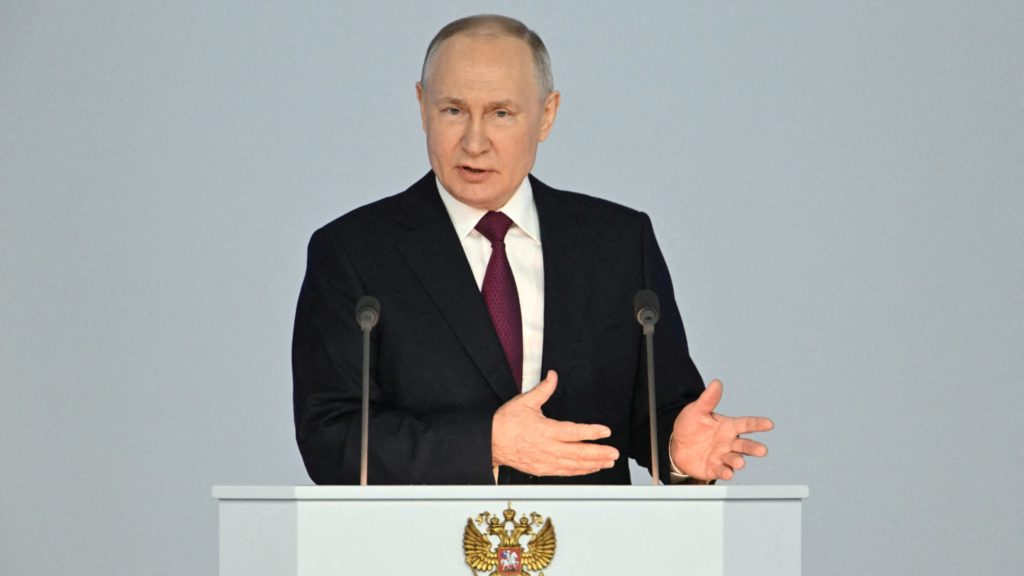Ukrainian Catholic leaders in the U.S. are applauding the International Criminal Court's March 17 decision to issue arrest warrants for Russian President Vladimir Putin and his commissioner for children's rights, Maria Alekseyevna Lvova-Belova.
The ICC charged the two with the war crimes of "unlawful deportation" and "unlawful transfer" of children from occupied areas of Ukraine to the Russian Federation.
The crimes were allegedly committed in Ukrainian-occupied territory from at least Feb. 24, 2022, when Russia launched a full-scale invasion of Ukraine, continuing attacks it had begun in 2014 with the attempted annexation of Crimea and the backing of separatists in Ukraine's Donetsk and Luhansk regions.
More than 16,200 Ukrainian children have been abducted by Russia, according to Ukraine's government. With some 66,000 war crimes reported, Ukraine has filed charges of genocide by Russia with the International Court of Justice.
The ICC's charges fall under articles specified in the court's governing Rome Statute, from which Russia withdrew in 2016 after the ICC ruled Russia's activities in Crimea were an "ongoing occupation." At present, 123 countries are signatories of the statute.
Although Russia is not a signatory -- meaning that Putin and Lvova-Belova would not risk arrest or deportation except in participating nations -- the arrest warrants "are a major development," said Metropolitan Archbishop Borys Gudziak of Philadelphia and head of the Ukrainian Catholic Church in the U.S. "They point at least to some of the war crimes that had been committed at President Putin's direction."
In addition, "the warrants also bring to global attention the plight of thousands of children abducted from Ukraine," Archbishop Gudziak told OSV News in a written statement. "Abduction of children is a part of genocidal strategy."
The 1948 Genocide Convention, to which Russia is a signatory, lists "forcibly transferring children of the group to another group" as an act of genocide.
The warrants show that "Putin and Russia will be brought to justice," said Eugene Luciw, president of the Ukrainian Congress Committee of America’s Philadelphia chapter and a member of Presentation of Our Lord Ukrainian Catholic Church in Lansdale, Pennsylvania.
That message also will serve to "bolster the Ukrainian people" who have "suffered so deeply" since 2014, giving them hope in a decisive victory against Russian aggression, said Luciw.
"At least the road to justice is being traveled," said Jonathan Peri, president of Manor College in Jenkintown, Pennsylvania, which has historic roots in the Ukrainian-American Catholic community and serves as a hub of Ukrainian heritage and advocacy. "We pray the international community moves on this swiftly, because the longer it takes, the worse the condition for Western civil society. This all is about Ukraine and more than Ukraine. It’s about global stability and free sovereign nations having the right to self-govern.”
Archbishop Gudziak said "it is very important to move beyond rhetoric and journalistic and scholarly argumentation to legal action," especially after economic sanctions have only "just surrounded him and touched the Russian financial and political elite."
Now, Putin "is being named as an alleged criminal," said the archbishop. "The documentation of the war crimes and the abduction of children is abundant. The victims now have a new hope that in the future justice will be done."

